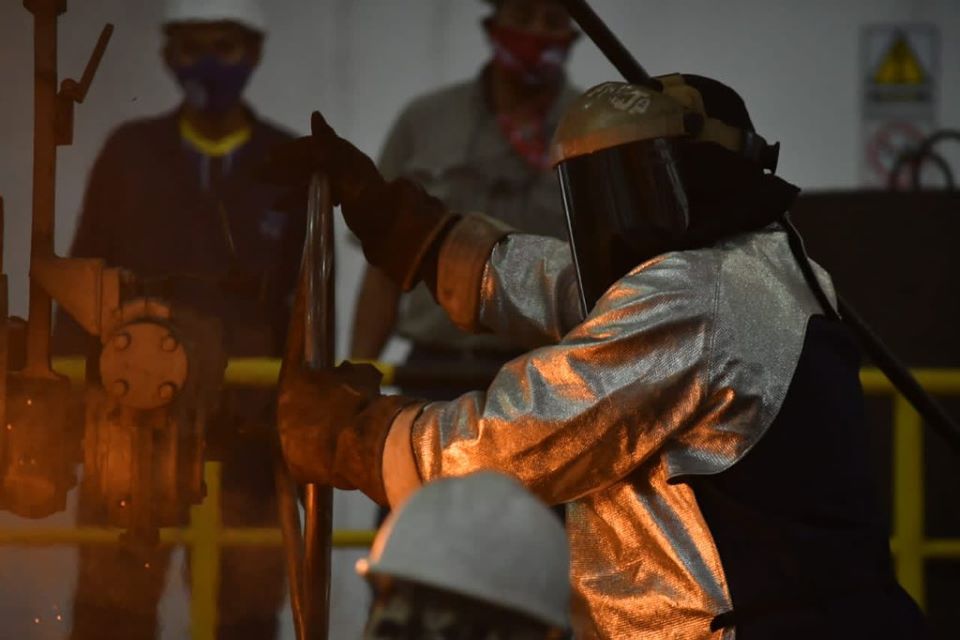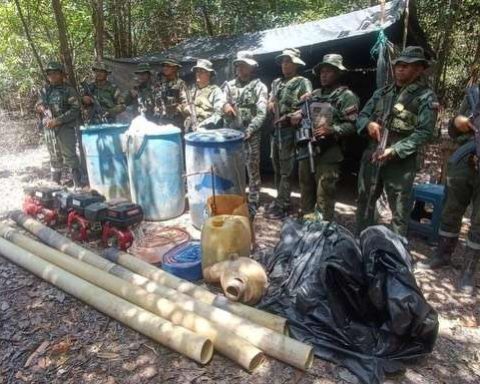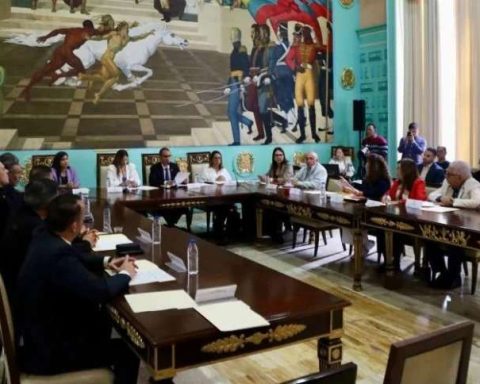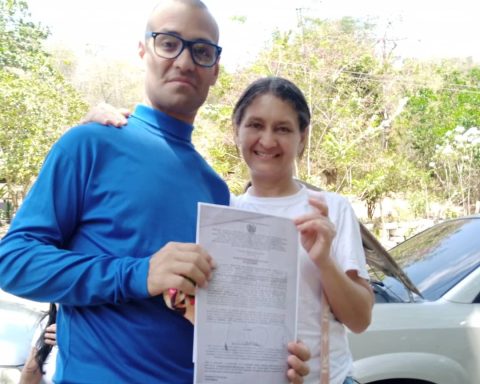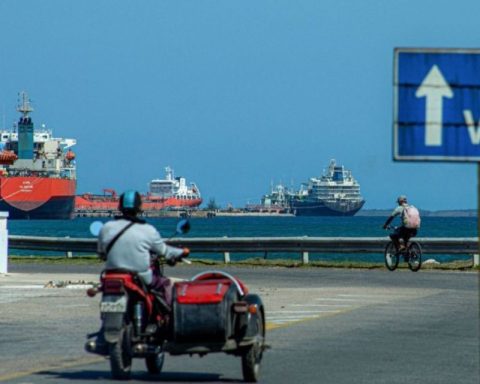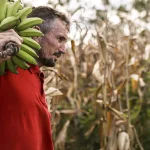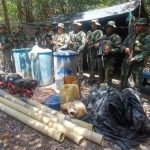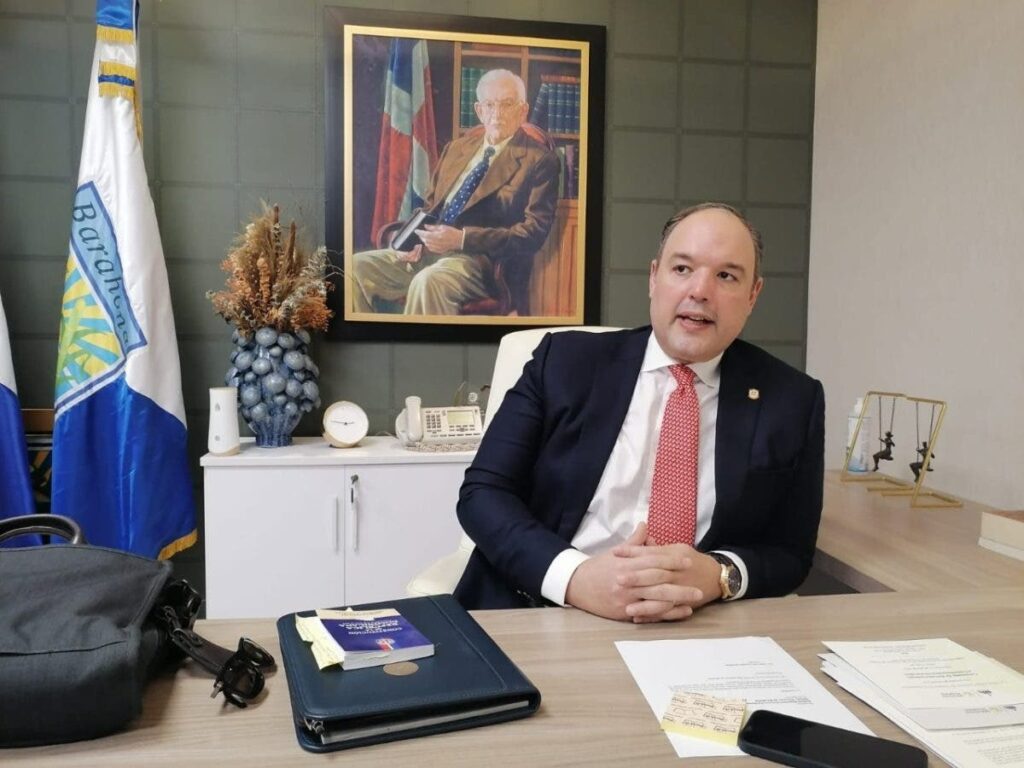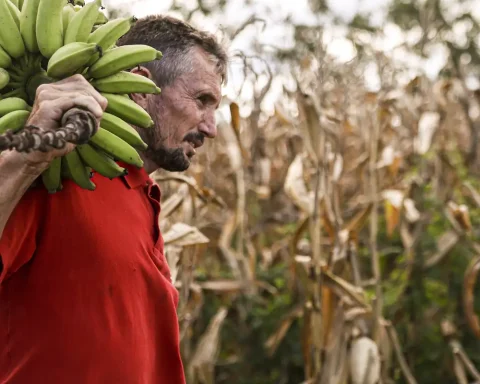Weeks before the commemoration of the first casting of the Siderúrgica del Orinoco, workers insist that there is not much to celebrate. They assure that the company is experiencing one of its worst moments and that production is almost at zero. Retired workers testify to the differences between how Sidor worked during the 20th century and during the “revolution.” “Those from the government are happy because they produce 200 tons, that was a shift. In one turn that happened. They want to deceive the country by saying that they produced 200 tons, we did that in eight hours»
Francesca Diaz | Mail of the Caroni
Guayana is synonymous with industrialization, or so it was from its conception as a city in which the development of an industrial city was proposed, which would allow taking advantage of the hydrological potential of the Orinoco and Caroní rivers and, of course, the construction of the largest industrial park from the country.
The birth of basic companies was the common thread in the definition of being a Guyanese, since it marked a milestone in the lifestyle of the population, leading to the development of multiple talents and the construction of universities and training centers to solve the demand for professionals and technicians.
Yunis Hernández worked for 43 years in the company and evokes that great achievements were achieved, among them, the schooling and teaching of many farm workers who migrated from other states to find their place in the industrial alternative.
«Sidor changed the system. We gave an image that we were capable of, from there began the industrialization and economic growth of the city. It was the love for the company, the pride of each of the Guyanese for those companies. 60 years ago we began to work with people brought from Sucre, Anzoátegui… we were able to get involved in modernity and production. Sidor transformed the city and the way of life. We were ascending socially, it was a great impact for us. Everyone who has worked at Sidor feels proud to be a supporter, that’s huge. It is indescribable,” Hernández argued.
It was Marcos Pérez Jiménez who glimpsed the idea of a steel company that would allow the establishment of a new alternative economic model to the export of oil, for this task he created the Office of Special Studies of the Presidency of the Republic, a department that selected the Italian firm Innoccenti for take responsibility for the construction of one of the largest industrial plants in Latin America, which was a large-scale project for both Venezuela and the European country. In turn, at least 400 Venezuelans were sent to Italy to train in the use of new technologies; however, the rest of the workforce was recruited from rural residents.
In this regard, Hernández stated that this process included the need for schooling, hard work and adaptation on the part of Venezuelans, who faced a colossal challenge never experienced before in the country.
«He went out to the fields to look for labor and immediately the people took over and learned. There were Guayaneses, Sucrenses, Monaguenses… They were people willing to contribute their efforts. When one remembers that wonderful time, people who had no education or literacy, but learned to operate those ovens, to weld, to work. The highest record was during the privatization, but we met the goals from the beginning. These high levels of production were also due to the fact that there was modernization », he explained.
Locating Sidor in Matanzas was due to the fact that it is the area of the Caroní River where the largest iron reserves are located and, in turn, the soil is of good quality and its proximity to the river benefited the mobilization of raw material and finished products.
The Office of Special Studies would be renamed the Venezuelan Iron and Steel Institute during the presidency of Wolfgang Larrazábal (1958).
In 1960, President Rómulo Betancourt founded the Corporación Venezolana de Guayana (CVG) and took control of the project. On July 9, 1963, the first steel casting occurred in the steel mill, which represented one of the most important milestones in the country’s industrial history.
Also read: President Leoni: the other laborista, by Humberto Villasmil Prieto
Risking life for employment benefits
Occupational diseases, long working hours and the exposure of workers to extreme working conditions are some of the difficulties of working in the company. However, the seradoristas interviewed argued that these are circumstances that were worth going through due to the remuneration and benefits.
During Rafael Caldera’s second term, the State determined that the company was making losses, consequently, it decided to privatize the steel company through public bidding, a process that ended with Sidor in the hands of the Amazonia Consortium, made up of several Latin American companies led by the Argentinian group Techint.
According to the workers, the years of privatization were the most prosperous time of the state company with the arrival of new technologies.
“As a steel company there were many risks, but when the company was privatized, many technological adjustments were made according to its capacity. In those years it was a company with great response capacity, top quality implements… You would arrive for a shift from 11:00 pm to 7:00 am and leave at 7:00 in the morning without a wink, that was even production in that company. You arrived home exhausted. That was Sidor, not this company that they say is recovering with pure made-up lies. Those of us who live in productive Sidor know that this is not the case, neither in production nor in working conditions”, said a worker with 27 years of experience in the company.
«You were going to work eight hours, because every fortnight you satisfied all the needs of your family. That sacrifice was reflected when you bought your car, arranged your house, traveled with your family. That’s why you gave yourself body and soul to that company. The sense of belonging is one thing, but what really motivates you to stay in a company is the remuneration and the response you receive from the company. The worker at that time felt calm with what he received, “said a worker who requested anonymity.
Also read: Sidor improved Skin Pass plant production in June by cannibalizing Cold Rolling
A foundation for the family project
Beyond the good salary that made Sidor an option for development and economic sustainability, the labor benefits established in the collective contracts were no less attractive: hospitalization, surgery and maternity services in clinics throughout the country, paid for by the company; well-paid vacations, loans to buy cars and housing, scholarships for studies for the children of paid workers, vacation plans: this golden opportunity mobilized many internal migrants to Ciudad Guayana.
“My children studied in private colleges and universities. We left the mud house to live in urbanizations, these places had schools nearby, with HCM insurance. That’s why we seradors love that company so much, because what we are, we owe to the company. Producing is not easy, but it was worth it because there was a social ascent,” said Yurkis Hernández, a Sidor retiree.
For its part, this situation boosted the educational offer in Guayana, creating more than six universities and institutes to meet the demand for professionals and technicians. Engineering and administration became the most valued careers, since the student hoped to graduate and get a job at Sidor or at any of the basic companies of the CVG holding company.
«When I joined Sidor, I worked 13 years outsourced. For 13 years I filed papers to get a Sidor payroll, that company for a family man meant future, family project, personal projects. It was everything. We submitted the papers every year in the hope that Sidor would give us a vacant position. The education of my children is an important point. We seroristas had our children studying in the best schools in the area. We guaranteed them transportation, vacation plans… There were colleagues who even assumed the education of their nephews: supplies, enrollment, registration. It gave one peace of mind to be in a company of that magnitude. Health was another matter, I even had my father-in-law included in the Sidor policy. You had an accident and went to the clinic that was active and were immediately attended to, “said a worker with 30 years of experience in the company.
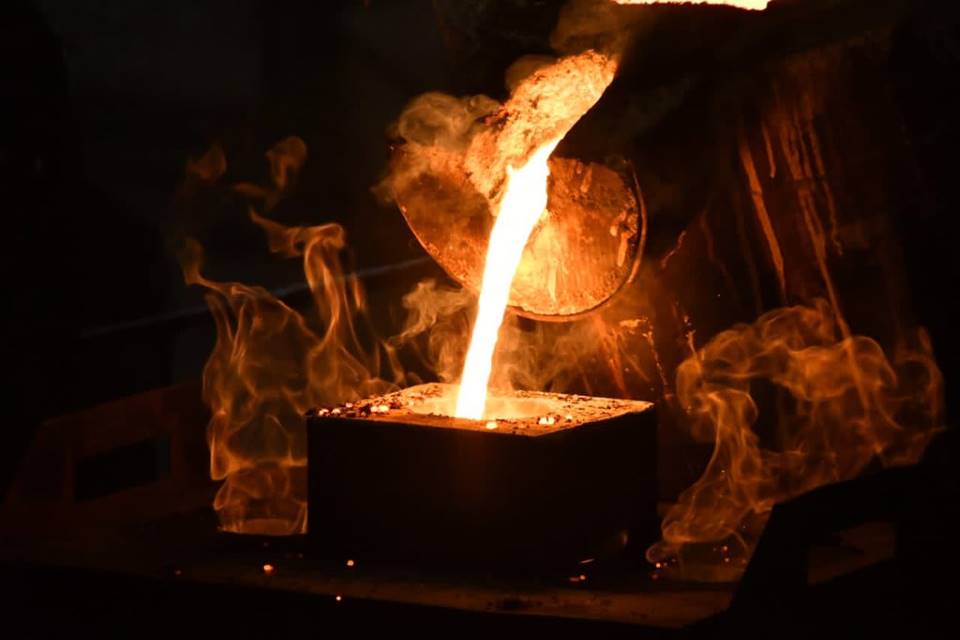
The reality of Sidor in revolution
Although there are no official figures on the current state of Sidor, specialists agree that the company is currently operating at 10% of its capacity. Work accidents, unused areas and failures in the production process have characterized the last years of the state company.
All this contrasts with that steel industry of the 20th century, which even with its failures and production problems, presented favorable figures and balances.
The party members have seen their benefits diminish with the eradication of the HCM, the absence of bonus payments, the impossibility of vacationing and even the failure to deliver protective equipment to work.
In this sense, retired workers asserted that it is a painful situation for those who dedicated their working lives to the company and who today receive a very poor pension and cannot afford the treatment of their chronic or occupational diseases.
«Never and never did I imagine that Sidor would reach this state, although we have suspected it since 2010 when we began to notice the lack of spare parts, the lack of delivery of personal protective equipment, the lack of collective contracts: we were in decline. Starting in 2010, when the next collective contract expired since 2008 was not signed, the attack on the union leadership began there. The spare parts did not arrive on time, there was a lack of supplies… All this began to happen in 2010, we were seeing the deterioration. To maintain the equipment, they began to take out spare parts, to make palliatives, inventive… There we could realize that the company was not being well managed, “said one of the deponents.
However, the administration of the company, currently chaired by Néstor Astudillo, insists on the recovery of 22 plants and part of the production capacity. In the words of the serdoristas, these figures are not true.
Also read: After 11 years in prison, Rodney Álvarez seeks to fight for the cause of the workers
“Those from the government are happy because they produce 200 tons, that was a shift. In one turn that happened. They want to deceive the country by saying that they produced 200 tons, we did that in eight hours. In addition, professionals and technicians were replaced… People who have no idea what it means to be the main steel company in Venezuela. Its green areas, offices… Everything today is in total and absolute abandonment».
Sale of shares: a saving proposal
The National Executive, with a view to solving the economic crisis and the lack of liquidity, since the beginning of 2022 has promoted economic opening policies, among them, enacting a tax on foreign currency transactions in order to oxygenate its coffers.
Among the proposals, Nicolás Maduro reported that he planned to offer shares of the basic companies of Guayana, the National Telephone Company of Venezuela and Movilnet on the stock market.
Until now, only the offer of 5% of Banco de Venezuela shares has been made official. In this sense, the serdoristas do not see this offer as a feasible long-term alternative for the recovery of the state company.
“Which shareholder is going to invest in these companies? If I had a few billion dollars, I would not put them there for the State to manage. This state is inefficient. Everything he has touched, among other things, companies that were successful, today are bankrupt. Sidor is run by politicians who change them every three months, they bring in soldiers… There is no meritocracy. No one with half a brain is going to invest in a company that the State manages as if it were a warehouse,” said one of the workers.
Also read: Unions and unions in Guayana call for all workers in the country to unite
Post Views:
98
